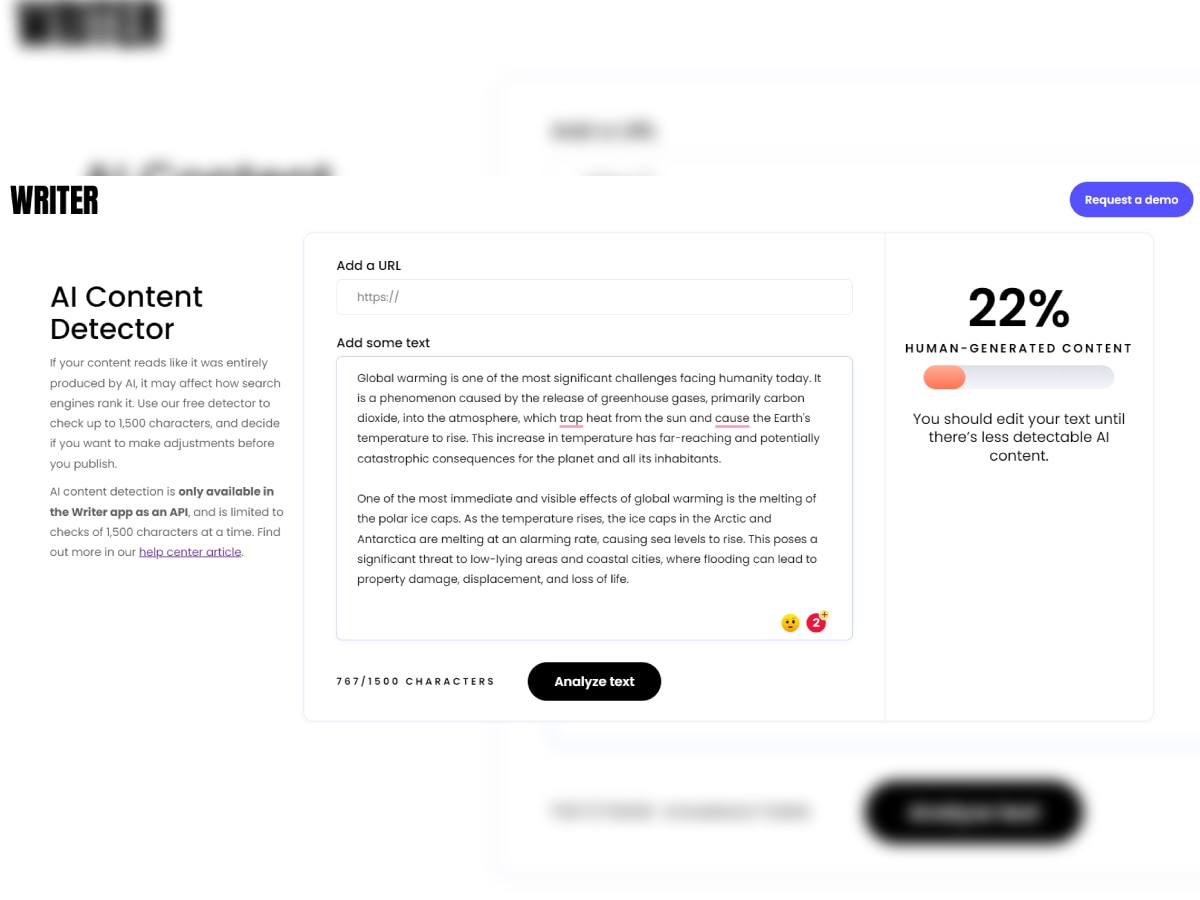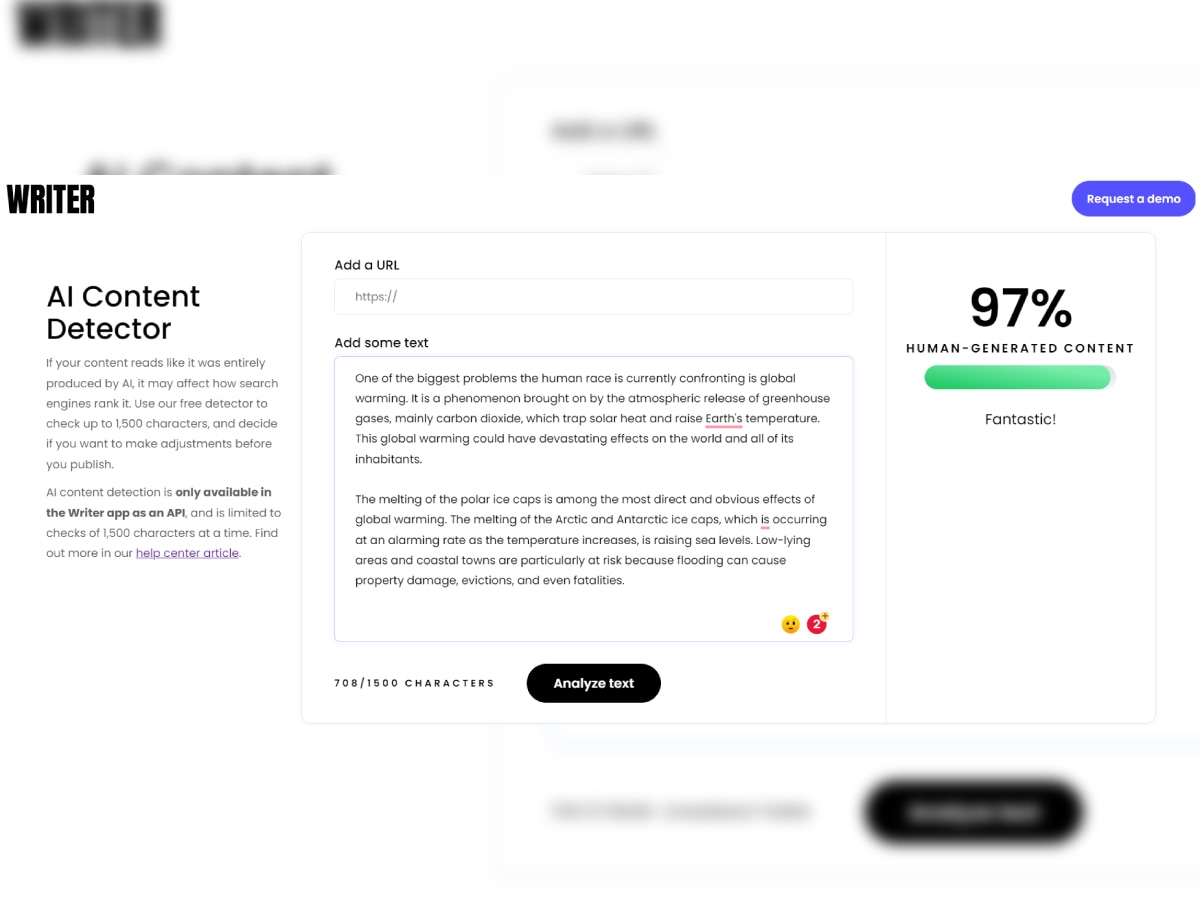Online Detectors Can Help Spot Articles Written By AI. This Tool Can Help Hack Such Checks
If you wish to spot an AI-generated article, there are several online tools that you can use to do so. However, there is a handy workaround.

ChatGPT, the AI-driven chatbot from Microsoft-backed OpenAI, was launched as a prototype in November 2022. Ever since then, ChatGPT’s ability to deliver surprisingly human-like responses to users’ queries made it popular among individuals and organisations alike, who are trying to leverage the chatbot to take care of tasks, which can range from writing an essay for school to generating complex programming codes in a matter of seconds.
Now, if you wish to spot an AI-generated article, there are several online tools that you can use to do so. Writer’s AI Content Detector is particularly effective in detecting GPT-3 articles. All you need to do is copy-paste an article on Writer’s tool and it will show you how much of the content is AI-generated. This tool can be handy for academicians and researchers alike. The only catch is that the tool cannot check more than 1,500 characters in one go.
ALSO READ: Bored Of ChatGPT? Here Are 10 Alternatives Worth Checking Out
Now, there is a hack that you can use to bypass any online content checker. Quillbot, an AI-driven writing assistant can help you paraphrase an article in such a way that even AI content detectors fail to catch them.
Let’s put Quillbot’s abilities to the test.
First, we asked ChatGPT to write an essay on global warming. Here’s an excerpt of what it wrote:
Global warming is one of the most significant challenges facing humanity today. It is a phenomenon caused by the release of greenhouse gases, primarily carbon dioxide, into the atmosphere, which trap heat from the sun and cause the Earth's temperature to rise. This increase in temperature has far-reaching and potentially catastrophic consequences for the planet and all its inhabitants.
One of the most immediate and visible effects of global warming is the melting of the polar ice caps. As the temperature rises, the ice caps in the Arctic and Antarctica are melting at an alarming rate, causing sea levels to rise. This poses a significant threat to low-lying areas and coastal cities, where flooding can lead to property damage, displacement, and loss of life.
Next, we ran the same article through Writer’s AI Content Detector and it showed that the article had only 22 per cent human-generated content.
Now comes the fun part, we copy-pasted the article on Quillbot, asking to paraphrase the copy. It should be noted that Quillbot has a maximum word count of 125, so it’s better to divide the original article into smaller parts to fit the limit.
This is what Quillbot generated:
One of the biggest problems the human race is currently confronting is global warming. It is a phenomenon brought on by the atmospheric release of greenhouse gases, mainly carbon dioxide, which trap solar heat and raise Earth's temperature. This global warming could have devastating effects on the world and all of its inhabitants.
The melting of the polar ice caps is among the most direct and obvious effects of global warming. The melting of the Arctic and Antarctic ice caps, which is occurring at an alarming rate as the temperature increases, is raising sea levels. Low-lying areas and coastal towns are particularly at risk because flooding can cause property damage, evictions, and even fatalities.
Finally, we ran the paraphrased article through Writer again, which this time showed that the copy has 97 per cent human-generated content — 75 per cent more than the last time.
Now, while you can use Quillbot to finesse your copies, it should be kept in mind the result of checks and detection — or rather the degree of detection — will vary from article to article. It should also be noted that results generated by Quillbot could be a little wonky at first. It's best to further rephrase sentences, as prompted by Quillbot. Still, it's a great example of how AI can take on AI itself.
Disclaimer: The article majorly includes the responses given by ChatGPT (AI-driven chatbot developed by OpenAI) to various questions/questionnaire and ABP Network Private Limited (‘ABP’) is in no manner liable/responsible for any of such responses. Accordingly, reader discretion is advised.






































